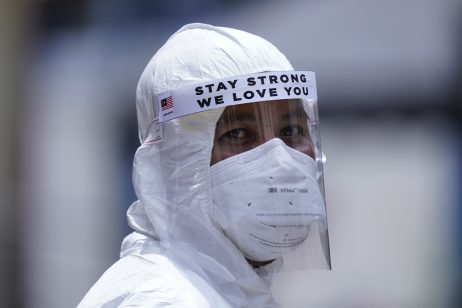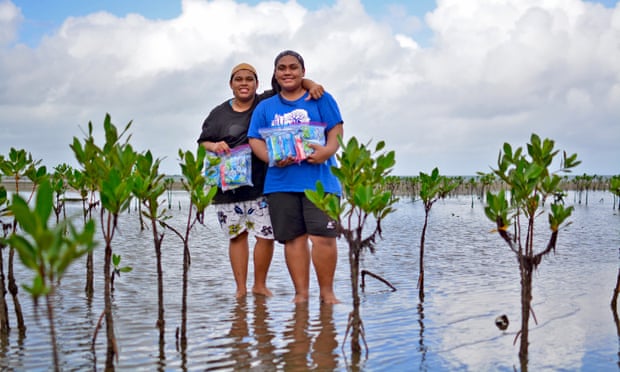Compiled by Student Assistants Katherine Kane and Anna H. Bartsch and Program Coordinator Ansel Lurio
Preventative Measures in Southeast Asia
https://thediplomat.com/2020/04/covid-19-in-asia-a-country-by-country-guide/
Cambodia, although late to respond to COVID-19, has taken preventative measures. They have been allocating more economic resources to the pandemic and their country’s health system. However, Cambodia has also been using COVID-19 to enact more repressive policies towards their citizens. Through the new “state of emergency” law draft, Cambodian Prime Minister Hun Sen will receive greater amounts of power in his position. Hun Sen is known for bringing peace and prosperity to Cambodia, but with COVID-19, the country’s economy is slipping, which is slowly destroying his political legacy in the eyes of the Cambodian people.
Indonesia has been handling COVID-19 by enacting a limited number of restrictions. The government has not yet been willing to take tougher action towards the virus while their testing capacity remains limited, although it has been rising. The many deaths of healthcare workers and the lack of equipment in Indonesia shows how overwhelmed their health care system is. A big concern of current rights activists is the Indonesian authorities’ use of criminal defamation laws to crack down on criticism of COVID-19. Criticism of the Indonesian government’s reaction to COVID-19 is not allowed, with social media accounts even being blocked when some people voice their concerns.
Malaysia has been quick to take preventative measures towards COVID-19, including the disbursement of three stimulus packages. However, many people are concerned about the government’s unconcern about the social consequences of COVID-19. These include sexist messages from the Women’s Development Department, although the government has apologized. Another concern is the new restriction policies, which highlight the disparities among groups in Malaysia, such as indigenous people and refugees.

Health staff wear protective equipment to help stop the spread of the coronavirus outside the Menara City One condominium under a lockdown in Kuala Lumpur, Malaysia, April 14, 2020. Credit: AP Photo/Vincent Thian
www.bbc.com/news/av/world-asia-51764846/coronavirus-vietnam-s-handwashing-song-goes-global
The Vietnam minister of health has worked with both singers Min and Erik and producer Khắc Hưng of the song “Ghen,” to create a new version with lyrics about fighting the spread of coronavirus. Min has shared this version on her own YouTube channel, where it has gained in popularity, and led dancer Quang Dang to create a dance routine which includes proper ways to wash one’s hands. This dance went viral on the social media platform TikTok and has travelled across the globe as a challenge known as the GhenCovyChallenge.
Cultural and Religious Responses to the Pandemic
https://asiatimes.com/2020/04/how-religious-communities-are-coping-with-covid-19/
Religious groups in Asia are taking preventative measures over the concern of COVID-19. For example, Catholics in Asia are opting to bow to their neighbors instead of shaking hands or touching. Baptisms for children are being done with “minimal physical contact” with the priest, who would normally touch the baby’s forehead. Muslims have been advised to not perform their usual religious functions, which would require large gatherings. The Hajj pilgrimage to Mecca has also been banned to international visitors. Buddhist temples have been closing across Asia, particularly in Hong Kong, where COVID-19 has been traced to temples. However, Christians and others are still adjusting their traditions to help prevent the spread of COVID-19.

Chinese Catholics attend a Christmas Eve Mass at the Xishiku Catholic Church, also known as the North Church, in Beijing on December 24, 2013. Photo: AFP
https://asia.nikkei.com/Life-Arts/Arts/Asian-artists-hone-weapons-in-fight-against-COVID-19
Vietnamese graphic artist Le Duc Hiep has created a popular vintage styled propaganda poster in Vietnam to help promote unity in the fight against COVID-19. The poster features two medical workers holding up a Vietnamese flag against the sun’s golden rays. This type of artwork is familiar to the Vietnamese people but also uses a modern approach, appealing to both the older and younger generations.
In Singapore, Weiman Kow has created a series of “infocomics.” She relates important and informative facts about washing hands and wearing masks, and combats misinformation being fed to the public. Kow has heard feedback from parents about her comics, which have made children more inclined to wash their hands frequently.
Robert Alejandro, a Filipino graphic artist, designer, and illustrator, has been holding daily online classes for children during the pandemic. His classes help promote creativity in children and help relieve them of anxieties and boredom during the Philippines’ community quarantine. He hosts hour-long drawing classes on Facebook Live for children and their parents. He even has “mindfulness drawing” workshops for adults.

Detail of a vintage propaganda-style poster by Vietnamese graphic artist Le Duc Hiep exhorting people to stay home during the coronavirus outbreak. (Courtesy of Le Duc Hiep)
COVID-19’s Effects on Women
In many remote places in Asia, such as Fiji and Nepal, the COVID-19 crisis has been negatively affecting menstrual health for women. Many women that live in remote locations are facing a lack of access to products such as sanitary pads. To help counter this issue, volunteers in Kathmandu, Nepal are making reusable sanitary pads. The volunteers hand make the pads and then bring them to women in need in rural villages, completely free of cost.

Two Nepali women are sewing sanitary pads in Kathmandu, Nepal on June 6, 2020. (Xinhua/Sulav Shrestha) © Provided by N.C.N. Limited
Although Fiji has a small number of COVID-19 cases, the community is still feeling the impacts of the virus. Importing has become limited and the lack of tourism means the average income has also dropped. This makes female hygiene products, such as sanitary pads, extremely limited and more expensive. Sisters AnneMary and Faith Raduva in Fiji have started a “dignity kit” campaign for girls affected by both COVID-19 and the Tropical Cyclone Harold. These contain pads, soap, toothbrushes, and toothpaste. Currently, they have sent over 600 kits to girls in need in the hardest hit parts of the country.

AnnMary Raduva (right) and her sister Faith with the dignity kits they have helped to put together, which contain sanitary pads, a toothbrush, toothpaste and soap. Photograph: Jovesa Naisua/The Guardian
Popular Culture and Music during the Pandemic
https://www.tokyoweekender.com/2020/04/tw-pop-culture-weekly-japans-coronavirus-songs-go-viral/
Japan has released a few songs in response to the Pandemic, with most of them being proper hand washing tactics accompanied by a fun dance. The popular band KAT-TUN has changed some of its own songs with lyrics to urge washing hands. Pikotaro changed his catchy song “PPAP” to “PPAP-2020,” which also urges the need of handwashing. Arashi has even come out with a new song, along with a dance, encouraging proper handwashing. And rapper Hannya in his tract, “In Da House,” discusses the importance of social distancing and isolation during this pandemic.
The other response by pop music during the pandemic is the transfer to social media platforms. Ayumi Hamasaki, one of the most well-known solo Japanese pop artists, has urged her TikTok fans to change her songs to fit the time of the pandemic.
Japan copyright laws have always allowed music being available online for free streaming, even on YouTube. However due to the COVID-19 pandemic big-name Japanese artists have started to stream their live shows for a limited time on YouTube including B’z, Kumi Koda, and Jin Akanishi.
Brian Gorgan, a writer in Shanghai, has found that the music industry in China has been especially hard hit during the pandemic, as most income is from ticket revenue and all concerts have either been cancelled or postponed. Some artists have responded by selling coupons which can be used at future concerts but also some have been live streaming on popular social media platforms such as TikTok to keep a strong community. There is a need for a new outlook on the music industry.
A video from Wuhan shows countless citizens screaming from their windows “keep it up, Wuhan” and “stay strong” and singing patriotic songs to keep morale up in the city, which was closed due to the pandemic. These videos have gone viral through social media approved in China. However, there are fears that yelling out windows might increase the chances for the virus to spread.
https://www.youtube.com/watch?v=HmV1qy2HJpk
At Myongji Hospital classical music is performed for both COVID-19 patients and staff, by such artists as violinist Won Hyung-joon, who intends to give peace and hope to those struggling through the pandemic. Songs like Ave Maria are played to give comfort and hope to those sick using computers to live stream the performances in quarantined patients’ hospital rooms.